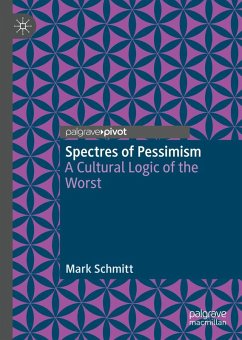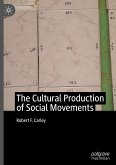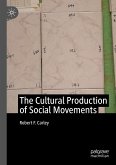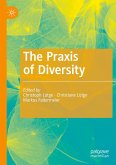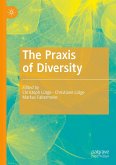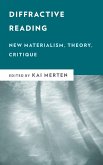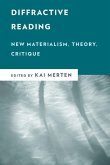This book argues that philosophical pessimism can offer vital impulses for contemporary cultural studies. Pessimist thought offers ways to interrogate notions of temporality, progress and futurity. When the horizon of future expectation is increasingly shaped by the prospect of apocalypse and extinction, an exploration of pessimist thought can help to make sense of an increasingly complex and uncertain world by affirming rather than suppressing the worst. This book argues that a cultural logic of the worst is at work in a substantial section of contemporary philosophical thought and cultural representations.
Spectres of pessimism can be found in contemporary ecocritical thought, antinatalist philosophies, political thought, and cultural theory, as well as in literature, film, and popular music. In its unsettling of temporality, this new pessimism shares sensibilities with the field of hauntology. Both deconstruct linear narratives of time that adhere to a stable sequence of past, present and future. Mark Schmitt therefore couples pessimism and hauntology to explore the spectres of pessimism in a range of theories and narratives-from ecocriticism, antinatalism and queer theory to utopianism, from afropessimism to the fiction of Hari Kunzru and Thomas Ligotti to the films of Camille Griffin, Gaspar Noé, Denis Villeneuve and Lars von Trier.
Spectres of pessimism can be found in contemporary ecocritical thought, antinatalist philosophies, political thought, and cultural theory, as well as in literature, film, and popular music. In its unsettling of temporality, this new pessimism shares sensibilities with the field of hauntology. Both deconstruct linear narratives of time that adhere to a stable sequence of past, present and future. Mark Schmitt therefore couples pessimism and hauntology to explore the spectres of pessimism in a range of theories and narratives-from ecocriticism, antinatalism and queer theory to utopianism, from afropessimism to the fiction of Hari Kunzru and Thomas Ligotti to the films of Camille Griffin, Gaspar Noé, Denis Villeneuve and Lars von Trier.
"The book keeps its promise to outline diverse strands of pessimism and goes on to show how these strands are irrevocably interwoven ... in cultural production, such as literary texts and films. Each chapter provides convincing and nuanced readings of these cultural texts and enriches each analysis with substantial theoretical, philosophical, and historical contexts. ... Writing concisely and clearly, Schmitt succeeds in proving the great extent to which pessimism is an integral part of contemporary society ... ." (Dilâra Yilmaz, Journal for the Study of British Cultures, Vol. 31 (1), 2024)
"Over recent years I have read many books on utopianism, and this is quite simply one of the best. A very thoughtful and wide-ranging critical engagement with utopianism in the context of pessimism. ... Spectres of Pessimism has a great deal of interesting things to say about the topic and will undoubtedly make a significant contribution to the production of further work in utopian studies. Highly recommended." (John Storey, Utopian Studies, Vol. 35 (1), 2024)
"Schmitt makes a strong case for the various ways in which pessimism may allow us to overcome our anthropocentric preoccupations. This makes his book paradoxically ... optimistic: By inviting the reader to imagine a 'world-without-us' instead of a 'world- for-us,' ... he offers pessimism 'as a corrective to overly optimistic ... inflections of cultural studies' ... suggesting that there is in fact a future to behold ... . Schmitt's book ... suggests a future path for cultural studies ... ." (Wieland Schwanebeck, MEDIENwissenschaft, Issue 3, 2023)
"The author presents theoretical discussion of ... a pessimistic future for humanity and also reviews imaginative work in novels and films which explore these areas of experience. Dystopian art forms are, Schmitt shows, strongly present and in uential in contemporary culture. ... the theoretical ideas presented-andthe related examples of dystopian literature and cinema-set out a significant field of contemporary work, which calls for attention in these hard times." (Michael Rustin, The Political Quarterly, July 10, 2023)
"Over recent years I have read many books on utopianism, and this is quite simply one of the best. A very thoughtful and wide-ranging critical engagement with utopianism in the context of pessimism. ... Spectres of Pessimism has a great deal of interesting things to say about the topic and will undoubtedly make a significant contribution to the production of further work in utopian studies. Highly recommended." (John Storey, Utopian Studies, Vol. 35 (1), 2024)
"Schmitt makes a strong case for the various ways in which pessimism may allow us to overcome our anthropocentric preoccupations. This makes his book paradoxically ... optimistic: By inviting the reader to imagine a 'world-without-us' instead of a 'world- for-us,' ... he offers pessimism 'as a corrective to overly optimistic ... inflections of cultural studies' ... suggesting that there is in fact a future to behold ... . Schmitt's book ... suggests a future path for cultural studies ... ." (Wieland Schwanebeck, MEDIENwissenschaft, Issue 3, 2023)
"The author presents theoretical discussion of ... a pessimistic future for humanity and also reviews imaginative work in novels and films which explore these areas of experience. Dystopian art forms are, Schmitt shows, strongly present and in uential in contemporary culture. ... the theoretical ideas presented-andthe related examples of dystopian literature and cinema-set out a significant field of contemporary work, which calls for attention in these hard times." (Michael Rustin, The Political Quarterly, July 10, 2023)

